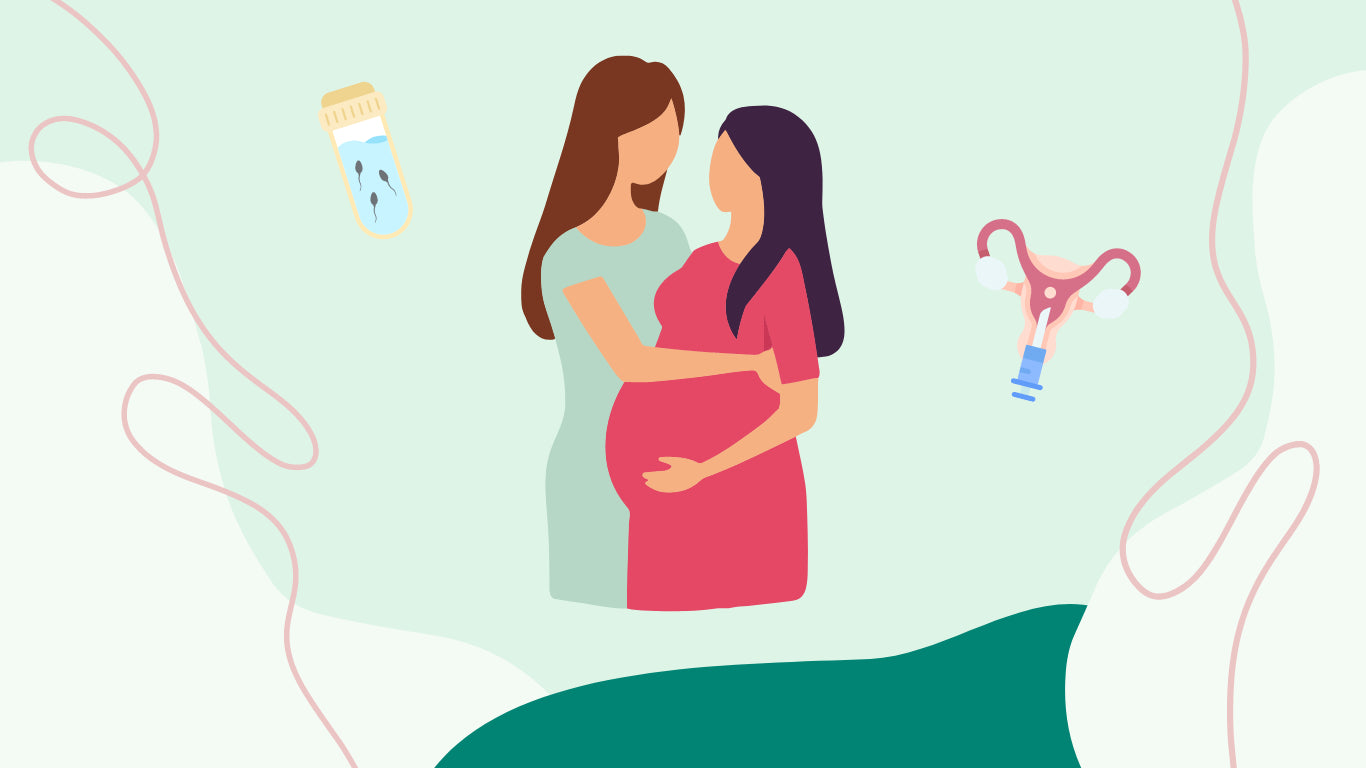For those who have been trying to conceive for at least a year, the experience can be incredibly frustrating and emotionally challenging. While there are many medical interventions available, there are also several lifestyle changes that may help increase the chances of conception.
Understanding infertility and its causes
Infertility is defined as the inability to conceive after one year of trying. According to the Centers for Disease Control and Prevention (CDC), approximately 12% of women in the United States between the ages of 15 and 44 have difficulty getting or staying pregnant.
There are many factors that can contribute to infertility, including age, underlying medical conditions, lifestyle factors, and genetics. For women, age is one of the most significant factors. As women age, their ovarian reserve and egg quality decline, making it more difficult to conceive. For men, factors such as low sperm count or poor sperm motility can impact fertility.
When trying to solve the fertility mystery, we often go seeking one cause. But in reality, there may be several issues working against achieving pregnancy without support.
When to seek medical help
If you’ve been trying to conceive for over a year with no success, it’s important to talk to your medical provider and to determine if there is an underlying problem contributing to your difficulty conceiving. If you’re over the age of 35, have a history of irregular periods or pelvic pain, or have a family history of infertility, seeking help sooner rather than later is wise as these are all factors associated with greater difficulty conceiving.
When you schedule an appointment with a fertility specialist, they will likely ask you a series of questions about your medical history, lifestyle habits, and sexual health. They may also perform a physical exam and order a variety of tests to determine if there are any underlying medical issues that may be impacting your fertility.
A hormone panel, metabolic panel, complete blood count, thyroid panel, semen analysis, and imaging of the female reproductive organs are often included in initial testing. There are many reasons why conception may not occur, and oftentimes, there is a solution within reach. Common causes of infertility include: anovulation, thyroid disorder, uterine anomalies such as uterine septums, hydrosalpinx, poor egg and sperm quality, and clotting disorders.
Lifestyle changes to improve fertility
Making healthy lifestyle choices can play a significant role in improving fertility. One of the most important lifestyle changes you can make is maintaining a healthy weight. Being overweight or underweight can impact hormone levels and make it more difficult to conceive.
Another lifestyle change to consider is reducing your caffeine intake. While there is no definitive evidence linking caffeine to infertility, some studies have suggested that high levels of caffeine consumption may increase the risk of miscarriage.
Finally, it’s important to manage stress levels. High levels of stress can impact hormone levels and make it more difficult to conceive. Consider practicing yoga, meditation, or other stress-reducing activities.
Optimally time sex or insemination
There is a lot of advice swirling in the fertility community about when and how often to have sex to successfully conceive. While the frequency is an individual choice (and your doctor may have recommendations too if you’re struggling with male infertility), in order to get pregnant you must have sex or insemination during the fertile window which extends for about 4 days before ovulation and on ovulation day itself.
LH (or luteinizing hormone) surges 24-48 hours before ovulation and this helps the user know when the fertile window is nearly complete. While these tests do not signal the start of the fertile window they can be useful for knowing ovulation may be (but is not guaranteed) iminent.
kegg is designed to show you when you the full fertile window. When waiting for an LH surge to have sex or inseminate, the majority of the most fertile days are missed. Timing is crucial and with kegg you can feel confident that you’re timing things just right without feeling pressured or the need to have sex throughout your entire cycle.

Nutrition and supplements for fertility
In addition to lifestyle changes, nutrition and supplements can also play a role in improving fertility. Eating a diet rich in fruits, vegetables, lean proteins, and whole grains can provide your body with the nutrients it needs to support fertility.
Supplements such as folate, CoQ10, N-Acetylcysteine, vitamin D, myo-inositol, and omega-3 fatty acids may also be beneficial for improving fertility. However, it’s important to speak with your healthcare provider before starting any new supplements to ensure they are safe and appropriately tailored for you.
Alternative treatments for infertility
In addition to medical treatments and lifestyle changes, there are also alternative treatments that may improve fertility. Some of these treatments include acupuncture, herbal remedies, and redlight therapy.
Several studies have shown improvements in male and female fertility parameters with both redlight therapy and black seed oil. Additionally, there have been documented improvements in IVF pregnancy rates with acupuncture treatment. If you’re interested in alternative treatments, be sure to speak with your healthcare provider to ensure they are safe and appropriate for you.
Let’s look at a few stories of women who were diagnosed with common causes of infertility:
- Anovulatory cycles due to PCOS: Anita had irregular cycles that range from 35 to 100 days in length. Hormone testing, ultrasound, and medical history yielded a diagnosis of PCOS and anovulatory cycles. Anita’s doctor prescribed metformin, a medication used to decrease insulin resistance which is helpful in restoring ovulatory function in many women with PCOS. Anita soon began to cycle again and conceived 3 cycles later.
- Hypothyroidism: Kate, 37, saw her doctor after trying to conceive for 7 cycles. Her initial testing revealed an elevated TSH and a below range Free T4. Her doctor prescribed thyroid hormone and Kate noted that her cycle lengths regulated after 2 cycles. She also reported that she was less fatigued and cold.
- Azoospermia: Jake and Angela sought help from an infertility specialist after 17 months trying to conceive. Angela had tried multiple fertility supplements and diets. Her cycle lengths were regular and she and Jake had sex throughout her fertile window. Fertility testing revealed that Jake had azoospermia, or the absence of sperm. He was referred to a urologist and treated for a varicocele that was causing the azoospermia. Jake and Angela recently welcomed a baby boy, conceived naturally.
- Uterine septum: Grace suffered from very heavy periods and saw a Reproductive Endocrinologist, as she suspected there may be an underlying problem. An HSG revealed a septum through her uterus. An MRI confirmed that she has a bicornuate uterus with a complete septum. Her doctor let her know this is a common cause of both difficulty getting pregnant and first trimester loss. She had her septum surgically resected and she was able to conceive after that.
Success stories and inspiration
While infertility can be difficult, it’s important to remember that many couples are able to successfully conceive with the right treatment and support. There are many success stories out there, and hearing them can provide inspiration and hope. The kegg team is also made up of several women who have been diagnosed with infertility and have gone on to successfully conceive and grow their families.
Consider joining our online community or support groups for couples struggling with infertility. These groups can provide a sense of community and support, as well as help you connect with others who are going through similar experiences.



